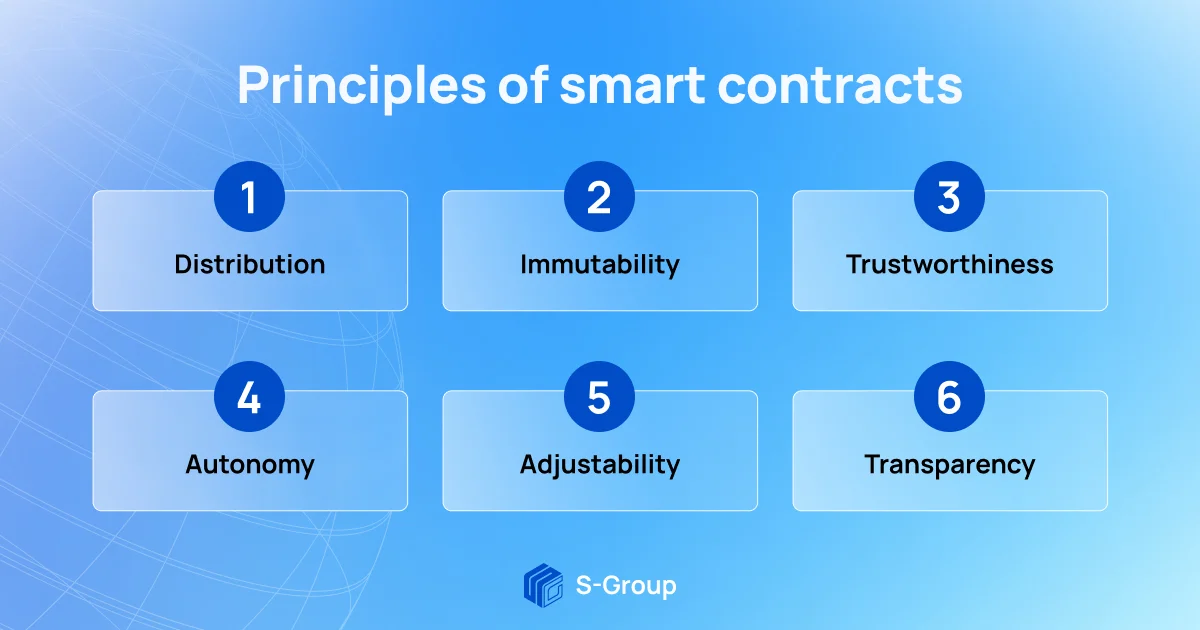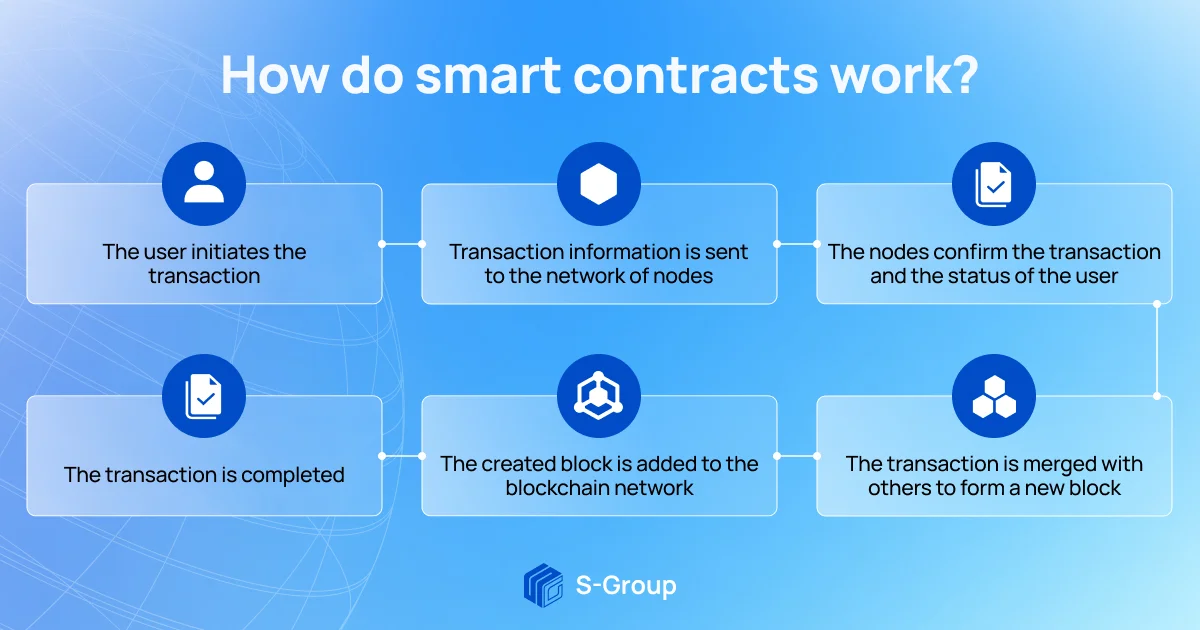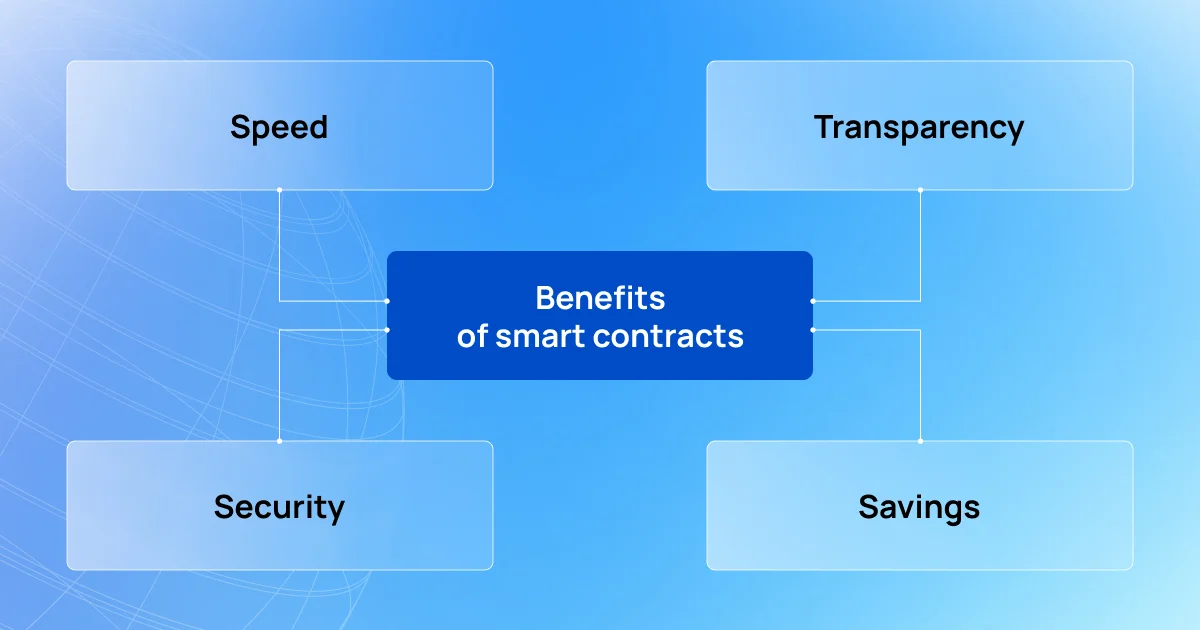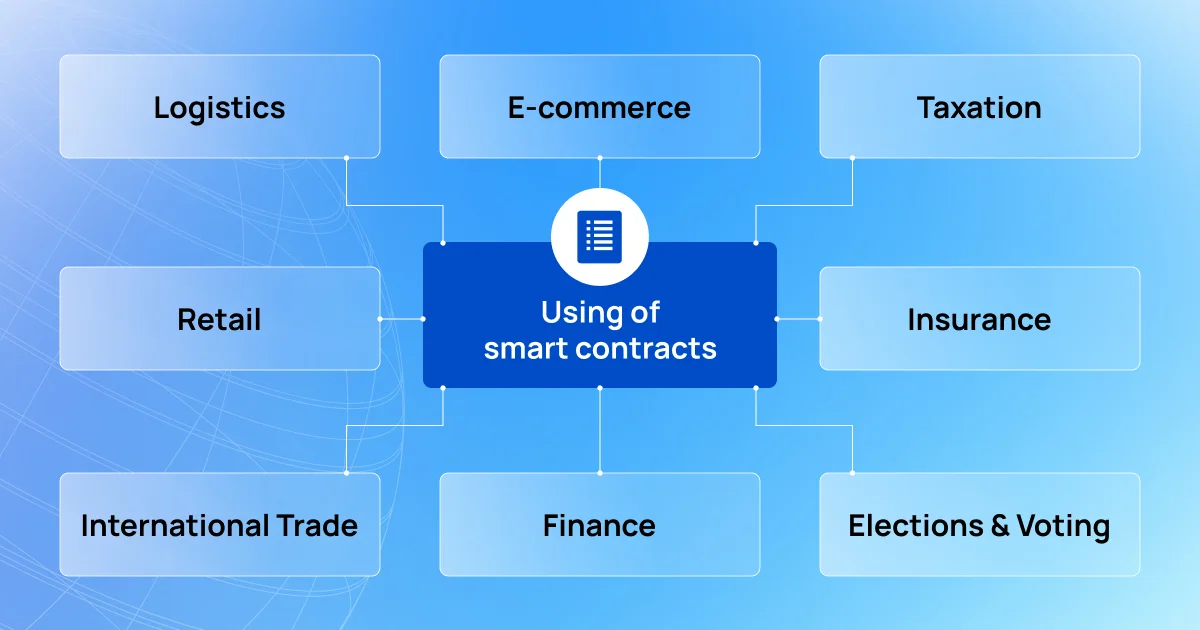Smart contracts: what they are and how they work

Contracts regulate most aspects of our professional and personal lives. They are essential to the equitable and fair cooperation and functioning of modern society.
In blockchain, smart contracts also play a very important role. They help make transactions transparent, secure and reliable. But while smart contracts are often associated with blockchain, smart contract technology predates blockchain and bitcoin.
This article explains how smart contracts came to be, what they are, and where they are used.
Definition and history of smart contracts
The idea of smart contracts was first proposed by Nick Szabo in the 1990s. He defined smart contracts as digital transmission protocols that use special algorithms to execute transactions and track transaction conditions.
Ethereum is considered the most popular platform on which smart contracts are created. It was after Ethereum emerged in 2013 that smart contracts began to be used in practice.
Smart contracts are now software code in a blockchain with an algorithm that enforces all conditions. Such a contract specifies the exact terms and conditions of its fulfillment and is signed by the participants based on public and private keys. This makes it possible to automate the execution of the contract, because if any conditions are not met, the smart contract will not be executed.
Smart contracts are executed within a blockchain. This means that the conditions are stored in a distributed database and cannot be changed or tampered with unnoticed by the other parties.

Important. In order for a smart contract to be executed, the system must have the following data.
- Stakeholders — parties to the contract who are verified with an electronic or multi-signature signature.
- Subject of the contract — the assets that will be exchanged based on the smart contract. It can be physical goods, services, cryptocurrency or data.
- Contract terms — information about the parties' obligations with conditions that must be met to complete the contract.
How do smart contracts work?
Technologically, how smart contracts work can be described as follows.
1. A user wants to perform a transaction and initiates a transaction.
2. information about the transaction goes to the network, which consists of computers and network nodes (nodes).
3. The nodes confirm the transaction and the status of the user based on the established algorithms.
4. The confirmed transaction is merged with other transactions to form a new block of the digital ledger.
5. The new, created block is added to the blockchain network.
6. The transaction is completed.

Capabilities of smart contracts
With smart contracts, developers can create a wide variety of decentralized applications and tokens. Applications based on smart contracts are called “decentralized applications” or “dapps”. They are built on decentralized finance (DeFi) technology, which is designed to change the banking industry.
With DeFi apps, users can make various financial transactions: sending, exchanging cryptocurrencies, cryptocurrency lending, etc. without the involvement of a third party: a bank or other financial institution.
Apart from Ethereum, there are other examples of popular platforms that support and use smart contracts.
Uniswap is a decentralized crypto-exchange that allows users to trade certain types of cryptocurrencies without any central authority setting exchange rates using a smart contract.
Compound is a platform that uses smart contracts to allow investors to earn interest through lending and borrowers to receive instant credit without the need for a bank.
USDC is a cryptocurrency that is pegged to the US dollar via a smart contract, resulting in one USDC being worth one US dollar. UDDC is part of a new category of digital money known as stabelcoins.
Benefits of smart contracts
The following key advantages of smart contracts can be highlighted.

- Speed. Once all the conditions are met, the contract is executed immediately. Because smart contracts are digital and automated, there is no need to process documents and spend time eliminating errors which often occur when filling out documents manually.
- Transparency. Since no third party is involved, and encrypted transaction records are shared by the participants, it becomes impossible to change information for personal gain.
- Security. Transaction records in the blockchain are encrypted, making them very difficult to hack. Moreover, because each record is linked to the previous and subsequent records in the distributed ledger, hackers would have to alter the entire chain to change a single record.
- Time and cost savings. Smart contracts eliminate the need for intermediaries to process transactions and the associated delays and fees.
Using of smart contracts
In addition to cryptocurrency and blockchain, smart contracts can find applications in many other areas. For example, in logistics, retail, international trade, real estate, elections, as well as finance, taxation and e-commerce.

And it's not just talk of using smart contracts in these areas in the future. Some companies are already using the technology in areas other than cryptocurrencies.
Sonoco and IBM, for example, are working to eliminate problems in the transportation of life-saving medicines by increasing transparency in the supply chain. Pharma Portal, based on IBM Blockchain Transparent Supply, is a blockchain-based platform that tracks the movement of temperature-controlled pharmaceuticals throughout the supply chain to provide reliable and accurate data to all parties to the transaction.
The greatest potential awaits smart contracts in finance, insurance, taxation, elections and e-commerce. For example, in the area of elections and voting, there is a high risk of fraud. Smart contracts offer the opportunity to not only confirm a voter's real identity, but also to securely store their vote in the data chain without the possibility of it being altered or tampered with.
The future of smart contracts

Smart contracts technology, like blockchain technology, is gradually gaining prominence in the global economy and in everyday life. Over time, smart contract technology has the potential to completely replace the contracts we are used to, enabling transactions to be conducted honestly and transparently, and minimising the likelihood of error.
Share
Interesting
Would you like to receive a digest of articles?
One email with the best articles of the week.
Sign up so you don't miss anything.